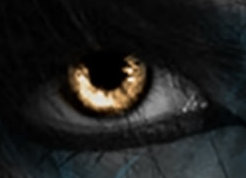Bush 2004 Victory Overpowered Historical Mythology
By James Donahue
According to native legends, George W. Bush should not have defeated John Kerry on Nov. 2, 2004.
His name was wrong, he was shorter than Kerry, the Washington Redskins lost their final home game
before the election and Burke’s Peerage declared that the Bush links to royal blood lines were not as strong as those
of his Democratic opponent.
All of these things were clear indicators of voter choices in the process of choosing presidents in
the past, historical records show.
If you study the names of the men elected to the office, a lot of them had double letters in their
names, like Kerry. There also were names like Roosevelt, Hoover, Kennedy, "Bill" Clinton and "Jimmy" Carter. We also recall
names like Adams (with two A’s), Dwight D. Eisenhower (two D’s and three E’s) and Nixon (with two N’s
divided by an X).
That John McCain was defeated by Barack Obama in 2008 also was slightly out of the formula. Even though
McCain had a double "C" in his name, Obama's first and last names offered double "A's." While they did not appear together,
the very number of "A's" in the name appears to have been enough to do the trick. Those letters also overpowered "Mitt" Romney's
double "T's" in 2012.
Using this formula, we can understand why George W. Bush, with two G’s and two E’s in
his name, defeated Al Gore in 2000. But beating John Kerry was another matter. The double R’s in Kerry’s name
should have been a more powerful voter draw than the separated double letters in the Bush name. Obviously they weren’t
quite enough.
Popular folklore also suggested that taller candidates usually won presidential elections. Bush, or
at least his political advisors, may have been very aware of this because they went to great lengths to make sure he stood
on an elevated platform so that he appeared as tall as the 6-foot, 4-inch Kerry during the three televised debates. The difference,
however, was noticeable when the two men met on stage to shake hands.
Bush stands at 5 feet, 11 inches.
The other omen: the incumbent president always lost if the Redskins lost their final home football
game before Election Day. It has happened since 1936, almost since the game was invented. The team lost to the Green Bay Packers
28-14, at home, on Oct. 31, 2004.
(That long-standing Redskin myth was broken in 2012 when Obama defeated Romney. The team lost its
game to the Carolina Panthers, 21-13 so the incumbent, Mr. Obama, should have lost to Romney. He didn't.)
And lastly, Burke’s Peerage found that Kerry is a distant cousin to Britain’s Queen Elizabeth.
Thus he has more blue blood in his veins than any presidential candidate in U.S. history. But that didn’t influence
voters either.
Religious fanatics might say it was God’s will that Bush was elected. Indeed, there were secret
powers involved in the events going on in America on Election Day, but it may have been political manipulation at the ballot
box. This has been suspected, but never proven.
The fact that the election drew such a heavy turnout of voters . . . sometimes over 70 percent of
the registered numbers . . . indicates that people knew it was an important decision, if only on a subconscious level.

